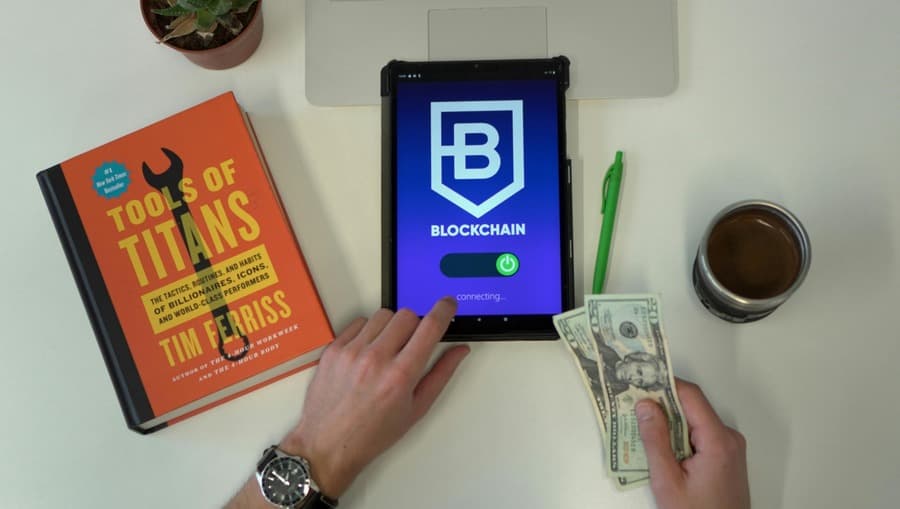Best Crypto Books and Resources

Essential Crypto Learning Resources: Books, Courses, Tools & More
The cryptocurrency and Blockchain space is a universe of constant innovation, evolving terminology, and dynamic markets. Whether you're taking your first steps or looking to deepen your existing knowledge, having access to reliable educational resources is paramount. This guide presents a curated list of essential books, online courses, data tools, and media resources tailored for various levels (beginner to advanced) and interests (technology, investment, history), helping you learn, stay informed, and navigate the world of digital assets with greater confidence.
Resource Classification Overview
To help you quickly find resources that match your learning level and budget, here's a table classifying the materials mentioned in this guide. Resources are sorted by price (Free first), then generally by type.
| Resource | Level | Price |
|---|---|---|
| Binance Academy | Beginner / Intermediate / Adv. | Free |
| Investopedia (Crypto Section) | Beginner / Intermediate | Free |
| "Why Cryptocurrencies?" (Online Book) | Beginner | Free |
| Unchained (Podcast) | Intermediate / Advanced | Free |
| Crypto 101 (Podcast) | Beginner | Free |
| Bankless (Podcast) | Intermediate | Free |
| What Bitcoin Did (Podcast) | Beginner / Intermediate | Free |
| Andreas M. Antonopoulos (YouTube) | Beginner / Intermediate / Adv. | Free |
| Coin Bureau (YouTube) | Beginner / Intermediate | Free |
| Finematics (YouTube) | Intermediate / Advanced | Free |
| Benjamin Cowen (YouTube) | Advanced | Free |
| Official Project Documentation | Intermediate / Advanced | Free |
| Blockchain Explorers (e.g., Etherscan) | Intermediate / Advanced | Free |
| Community Forums (Discord, Reddit) | Beginner / Intermediate / Adv. | Free |
| Coursera ("Bitcoin & Crypto Tech") | Intermediate | Freemium |
| CoinMarketCap | Beginner / Intermediate | Freemium |
| CoinGecko | Beginner / Intermediate | Freemium |
| TradingView | Intermediate / Advanced | Freemium |
| CryptoPanic | Intermediate / Advanced | Freemium |
| "The Bitcoin Standard" | Intermediate | Paid |
| "Digital Gold" | Beginner | Paid |
| "The Internet of Money" (Series) | Beginner | Paid |
| "Mastering Bitcoin" | Advanced | Paid |
| "Cryptoassets" | Intermediate | Paid |
| "Blockchain Basics" | Beginner | Paid |
| "Hijacking Bitcoin" | Intermediate | Paid |
| Udemy (Crypto Courses) | Beginner / Intermediate / Adv. | Paid |
| Academic Research (Journals/Paywalls) | Advanced | Paid |
Foundational Cryptocurrency Books
Books offer unparalleled depth and context. These selections provide valuable insights into different facets of the crypto world:
Understanding Bitcoin & Monetary History:
- "The Bitcoin Standard" by Saifedean Ammous
- Analyzes Bitcoin through the lens of Austrian economics and the history of money, arguing for its properties as "sound money." A thought-provoking, though sometimes opinionated, exploration of Bitcoin's potential economic role.
- Best for: Readers interested in economics, monetary theory, and the fundamental investment case for Bitcoin.
- "Digital Gold" by Nathaniel Popper
- A compelling narrative history of Bitcoin's origins, focusing on the key personalities (cypherpunks, entrepreneurs, developers) and pivotal moments that propelled it from obscurity to a global phenomenon. Excellent for understanding the culture and human story behind the code.
- Best for: Those who prefer learning through engaging stories and historical context.
Broader Crypto Vision & Philosophy:
- "The Internet of Money" (Series) by Andreas M. Antonopoulos
- A collection of Antonopoulos's insightful talks explaining the significance of Bitcoin and open blockchains beyond mere technology. Focuses on the social, political, and economic implications of decentralization. Known for making complex ideas accessible and inspiring.
- Best for: Anyone (especially beginners) wanting to grasp the "why" behind crypto and its transformative potential.
Technical Deep Dives:
- "Mastering Bitcoin" by Andreas M. Antonopoulos
- Considered the definitive technical guide to Bitcoin. It meticulously explains the underlying technology, including cryptography, transactions, wallets, the P2P network, and the blockchain itself. The content is also open-source. (A similar essential volume, "Mastering Ethereum," covers the leading smart contract platform).
- Best for: Developers, software engineers, computer science students, and anyone seeking a deep technical understanding.
Investing & Asset Analysis:
- "Cryptoassets: The Innovative Investor’s Guide to Bitcoin and Beyond" by Chris Burniske and Jack Tatar
- One of the first comprehensive books offering frameworks for valuing and investing in crypto assets. Covers portfolio construction, risk management techniques, and methods for analyzing different types of blockchain projects. Still relevant for its foundational approach.
- Best for: Investors seeking structured methods for evaluating crypto assets. Link: Crypto Trading Vs Holding.
Beginner-Friendly Overviews:
- "Blockchain Basics: A Non-Technical Introduction in 25 Steps" by Daniel Drescher
- Lives up to its title, breaking down core blockchain concepts like hashing, blocks, and consensus into simple, digestible steps without requiring technical expertise. Uses helpful analogies.
- Best for: Absolute beginners needing a structured, non-technical starting point.
- "Why Cryptocurrencies?" by Jonas Hietala
- A freely available online book offering a concise and clear explanation of why crypto exists, how Blockchain works, basic tokenomics, and practical applications. Excellent accessible starting point.
- Best for: Beginners wanting a quick, straightforward, and free introduction.
Critical Perspectives:
- "Hijacking Bitcoin: The Hidden History of BTC" by Roger Ver and Steve Patterson
- Presents a specific and critical narrative regarding Bitcoin's development, particularly the block size debate and subsequent forks. Important for understanding differing viewpoints within the community, though readers should consider the authors' own perspectives and biases.
- Best for: Those interested in the history of Bitcoin's internal conflicts and debates around scaling and decentralization.

Top Online Learning Platforms & Courses
Online platforms provide structured courses, often with interactive elements:
- Coursera
- Offers university-affiliated courses, like the foundational "Bitcoin and Cryptocurrency Technologies" course (linked with Princeton). Provides academic rigor through video lectures, readings, and quizzes, often with optional certificates upon completion.
- Best for: Learners seeking structured, university-level content.
- Binance Academy
- A vast, free educational resource from the world's largest crypto exchange. Offers articles, tutorials, videos, and a glossary covering topics from the absolute basics to complex DeFi concepts and trading strategies. Continuously updated.
- Best for: Self-paced learners at all levels wanting free, broad coverage of crypto topics.
- Udemy
- A large online course marketplace featuring numerous crypto-related courses from various instructors at different price points (often discounted). Topics range widely from introductory guides to specific Ethereum smart contract programming (Solidity) or technical trading analysis. Check reviews carefully as quality varies.
- Best for: Finding affordable courses on specific niche topics or skills, often video-based.
- Investopedia
- A highly respected source for general financial literacy. Its crypto section provides reliable, well-explained articles on basic concepts, market dynamics, and how crypto relates to broader financial principles. Great for definitions and understanding crypto in context.
- Best for: Beginners and investors wanting clear explanations from a trusted financial education perspective.

Essential Crypto Tools for Research & Tracking
Staying informed in the fast-moving crypto market requires reliable data and analysis tools:
- CoinMarketCap & CoinGecko
- Indispensable market data aggregators. Use them to track real-time prices, market capitalization, trading volumes, circulating supply, historical data, exchange rankings, and discover new Altcoins. They are often the first stop for researching specific assets. Both also offer portfolio tracking features. See: How To Track Your Crypto Portfolio.
- Best for: Everyone needing comprehensive crypto market data.
- TradingView
- The go-to platform for charting and technical analysis across crypto and traditional markets. Offers a vast array of drawing tools, technical indicators, and scripting capabilities. Also hosts a large social community where traders share charts and ideas (critical evaluation is essential).
- Best for: Traders and investors focusing on technical analysis and chart visualization.
- CryptoPanic
- A news aggregator specifically for the crypto space. It collects headlines and articles from dozens of sources in real-time, allowing users to quickly scan market-moving news and gauge prevailing sentiment based on news flow. Customizable alerts are a key feature.
- Best for: Active traders and investors needing to stay on top of breaking news efficiently.

Staying Informed: Podcasts & Online Video Content
Audio and video content can be great for learning on the go or understanding complex topics visually:
Podcasts:
- "Unchained" (Laura Shin): Features long-form, in-depth interviews with founders, developers, investors, regulators, and thought leaders across the crypto industry. Excellent for deep dives into current events and complex issues.
- "Crypto 101": Focuses on making crypto accessible to beginners, breaking down concepts, interviewing guests, and providing practical advice.
- "Bankless": Popular podcast focused heavily on the Ethereum ecosystem, DeFi, Layer 2s, and the vision of a decentralized financial future.
- "What Bitcoin Did" (Peter McCormack): Features interviews primarily focused on Bitcoin, its economics, philosophy, and adoption.
YouTube Channels:
- Andreas M. Antonopoulos: (Search channel name) Archive of his numerous talks and Q&A sessions. Unparalleled ability to explain complex technical and philosophical concepts clearly and engagingly.
- Coin Bureau: (Search channel name) Highly popular channel providing detailed reviews of various cryptocurrencies and projects, market analysis, and educational explainers with high production value.
- Finematics: (Search channel name) Uses clear animations to explain complex DeFi concepts, Smart Contracts And Industries Beyond Crypto mechanics, and blockchain technology.
- Benjamin Cowen: (Search channel name) Focuses on data-driven, quantitative analysis of crypto markets, particularly Bitcoin and Ethereum, looking at macro trends and risk metrics.
Important Disclaimer: The crypto media landscape includes many influencers. While informative, always approach content critically. Be wary of excessive hype, undisclosed sponsorships, or direct financial advice. Cross-reference information and always conduct your own thorough research (Do Your Own Research (DYOR)).
Other Valuable Resources
Beyond curated content, direct sources are invaluable:
- Official Project Documentation: The best source for understanding a specific project is usually its own website, whitepaper, technical documentation, and official blog/announcements.
- Blockchain Explorers: Tools like Etherscan (Ethereum/EVM), Solscan (Solana), etc., allow you to view and verify actual transactions, smart contract interactions, and wallet balances directly on the Blockchain.
- Community Forums: Official Discord servers, Telegram groups, and specific subreddits (like r/CryptoCurrency or project-specific ones) can provide insights and direct interaction, but require careful filtering due to noise and potential shilling.
- Academic Research: For those seeking cutting-edge technical details, preprint servers like arXiv.org often host research papers on cryptography, consensus algorithms, and new blockchain protocols.
Conclusion
The cryptocurrency space demands continuous learning. Thankfully, a wealth of high-quality resources exists to guide you, whether you prefer reading in-depth books, taking structured online courses, utilizing data analysis tools, or consuming audio/video content. By selecting resources that match your learning style and objectives – and critically evaluating all information consumed – you can build a solid foundation of knowledge. This commitment to ongoing education and performing your own research is key to navigating the complexities and opportunities of the crypto world successfully.
Start your journey or deepen your understanding with our Beginner-Friendly Posts.







